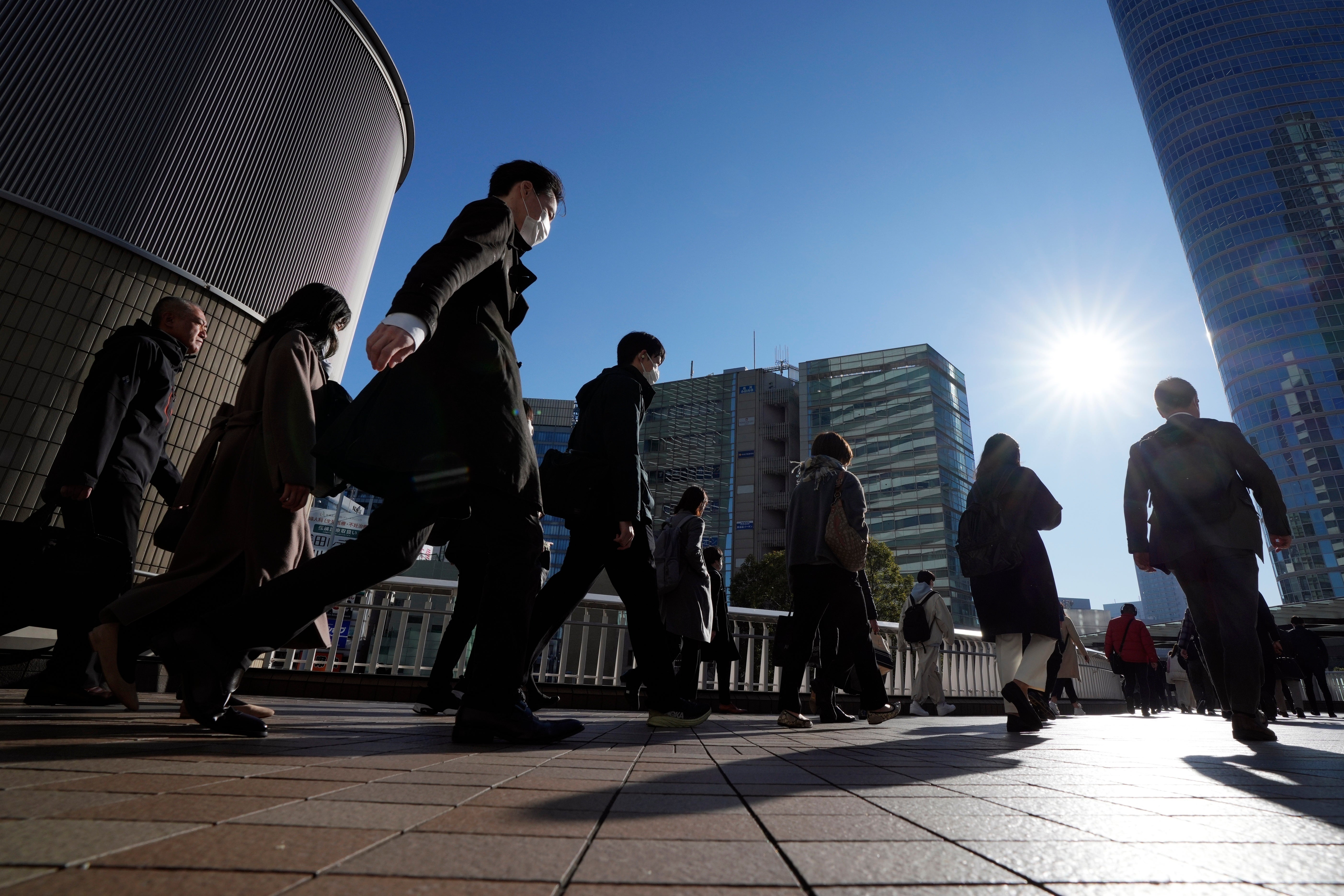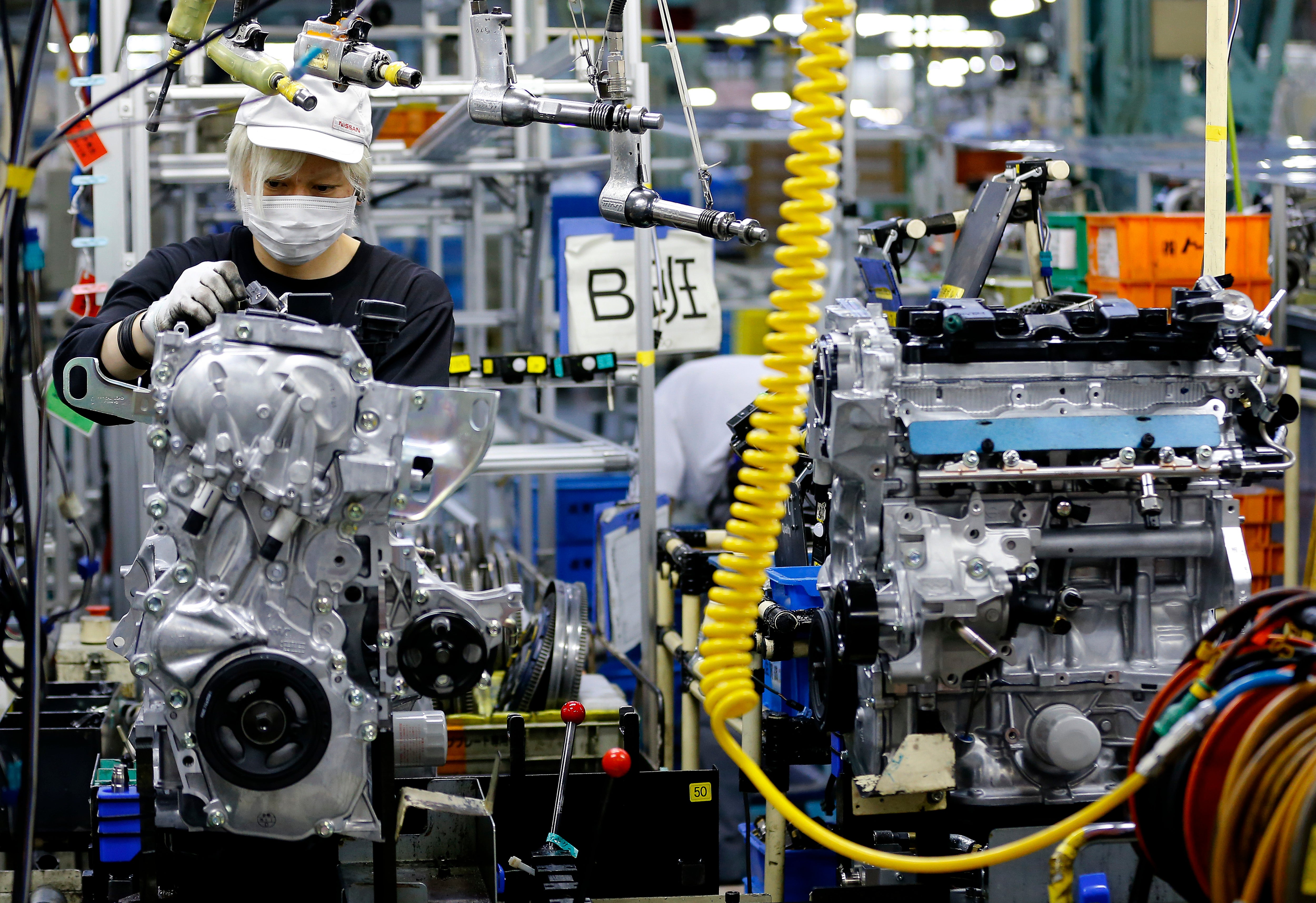A nation so hardworking its language has a time period for actually working oneself to dying, is attempting to persuade extra folks and firms to undertake four-day workweeks.
The Japanese authorities first expressed assist for a shorter working week in 2021, after lawmakers endorsed the concept. The idea has been sluggish to catch on, nonetheless; about 8% of firms in Japan enable staff to take three or extra days off per week, whereas 7% give their employees the legally mandated someday off, in line with the Ministry of Well being, Labor and Welfare.
Hoping to supply extra takers, particularly amongst small and medium-sized companies, the federal government launched a “work type reform” marketing campaign that promotes shorter hours and different versatile preparations together with additional time limits and paid annual go away. The labor ministry lately began providing free consulting, grants and a rising library of success tales as additional motivation.
“By realizing a society by which employees can select from quite a lot of working types primarily based on their circumstances, we purpose to create a virtuous cycle of progress and distribution and allow every employee to have a greater outlook for the long run,” states a ministry web site concerning the “hatarakikata kaikaku” marketing campaign, which interprets to “innovating how we work.”
The division overseeing the brand new assist companies for companies says solely three firms have come ahead to this point to request recommendation on making adjustments, related laws and obtainable subsidies, illustrating the challenges the initiative faces.

Maybe extra telling: of the 63,000 Panasonic Holdings Corp. staff who’re eligible for four-day schedules on the electronics maker and its group firms in Japan, solely 150 staff have opted to take them, in line with Yohei Mori, who oversees the initiative at one Panasonic firm.
The federal government’s official backing of a greater work-life stability represents a marked change in Japan, a rustic whose reputed tradition of workaholic stoicism usually bought credited for the nationwide restoration and stellar financial progress after World Warfare II.
Conformist pressures to sacrifice for one’s firm are intense. Residents sometimes take holidays on the identical time of 12 months as their colleagues — through the Bon holidays in the summertime and round New Yr’s — so co-workers cannot accuse them of being neglectful or uncaring.
Lengthy hours are the norm. Though 85% of employers report giving their employees two days off per week and there are authorized restrictions on additional time hours, that are negotiated with labor unions and detailed in contracts. However some Japanese do “service additional time,” that means it’s unreported and carried out with out compensation.
A latest authorities white paper on “karoshi,” the Japanese time period that in English means “dying from overwork, mentioned Japan has at the least 54 such fatalities a 12 months, together with from coronary heart assaults.

Japan’s “critical, conscientious and hard-working” folks are inclined to worth their relationships with their colleagues and type a bond with their firms, and Japanese TV exhibits and manga comics usually give attention to the office, mentioned Tim Craig, the creator of a guide known as “Cool Japan: Case Research from Japan’s Cultural and Artistic Industries.”
“Work is a giant deal right here. It’s not only a strategy to make cash, though it’s that, too,” mentioned Craig, who beforehand taught at Doshisha Enterprise Faculty and based enhancing and translation agency BlueSky Educational Providers.
Some officers think about altering that mindset as essential to sustaining a viable workforce amid Japan’s nosediving beginning price. On the present price, which is partly attributed to the nation’s job-focused tradition, the working age inhabitants is anticipated to say no 40% to 45 million folks in 2065, from the present 74 million, in line with authorities knowledge.
Proponents of the three-days-off mannequin say it encourages folks elevating youngsters, these caring for older kinfolk, retirees residing on pensions and others on the lookout for flexibility or extra revenue to stay within the workforce for longer.
Akiko Yokohama, who works at Spelldata, a small Tokyo-based expertise firm that enables staff to work a four-day schedule, takes Wednesdays off together with Saturdays and Sundays. The additional break day permits her to get her hair completed, attend different appointments or buy groceries.
“It’s arduous whenever you aren’t feeling nicely to maintain going for 5 days in a row. The remainder permits you to get well or go see the physician. Emotionally, it’s much less tense,” Yokohama mentioned.
Her husband, an actual property dealer, additionally will get Wednesdays off however works weekends, which is frequent in his trade. Yokohama mentioned that enables the couple to go on midweek household outings with their elementary-school age little one.
Quick Retailing Co., the Japanese firm that owns Uniqlo, Idea, J Model and different clothes manufacturers, pharmaceutical firm Shionogi & Co., and electronics firms Ricoh Co and Hitachi additionally started providing a four-day workweek lately.
The pattern even has gained traction within the notoriously consuming finance trade. Brokerage SMBC Nikko Securities Inc. began letting employees put in 4 days per week in 2020. Banking big Mizuho Monetary Group affords a three-day schedule choice.
Critics of the federal government’s push say that in apply, folks placed on four-day schedules usually find yourself working simply as arduous for much less pay.
However there are indicators of change.
A annual Gallup survey that measures worker engagement ranked Japan as having among the many least engaged employees of all nationalities surveyed; in the latest survey, solely 6% of the Japanese respondents described themselves as engaged at work in comparison with the worldwide common of 23%.
Meaning comparatively few Japanese employees felt extremely concerned of their office and keen about their work, whereas most have been placing of their hours with out investing ardour or power.
Kanako Ogino, president of Tokyo-based NS Group, thinks providing versatile hours is a should for filling jobs within the service trade, the place girls comprise many of the work power. The corporate, which operates karaoke venues and accommodations, affords 30 completely different scheduling patterns, together with a four-day workweek, but additionally taking lengthy intervals off in between work.
To make sure not one of the NS Group’s employees really feel penalized for selecting another schedule, Ogino asks every of her 4,000 staff twice a 12 months how they wish to work. Asserting particular person wants may be frowned upon in Japan, the place you might be anticipated to sacrifice for the frequent good.
“The view in Japan was: You’re cool the extra hours you’re employed, placing in free additional time,” Ogino mentioned with amusing. “However there is no such thing as a dream in such a life.”


